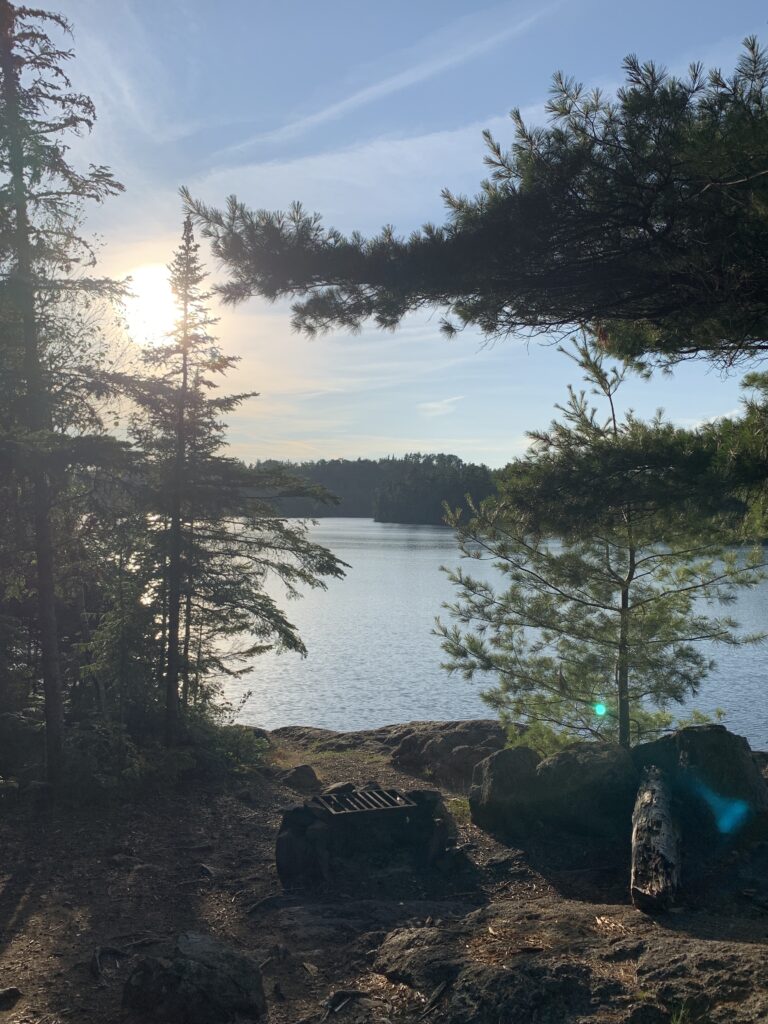BWCA permit reservations available?
Reservations for the upcoming paddling season in the Boundary Waters Canoe Area will be available starting January 26th. Whether or not an overnight paddling permit for the BWCA will be available for you to reserve is another story.
Last week I posted a blog about the reductions in BWCA permits made by the USFS for the 2022 paddling season. There have been a number of articles and interviews regarding this topic including one on television featuring our very own Cassidy from Voyageur Canoe Outfitters. The overall reduction in wilderness paddling permits the USFS cut was 13% across the Boundary Waters. That doesn’t sound too bad when you consider there’s close to 50 different BWCA entry points but the reductions made to the two entry points from our dock at Voyageur Canoe Outfitters is significant.
Completely erased from the BWCA permit system are Saganaga Lake Only and Seagull Lake Only permits. These permits allowed people to only camp on these lakes for the entirety of their trip. In previous year’s there were 3 permits for Saganaga Lake Only available each day and 2 permits for Seagull Lake Only each day.
In addition to the elimination of the Saganaga Lake Only and Seagull Lake Only permits the USFS also cut the number of Saganaga Lake and Seagull Lake entry point permits. Saganaga Lake permits went from 17 a day to 15 a day and Seagull Lake went from 11 permits a day to 8 permits a day. Overall Saganaga Lake permits were slashed from 20 to 15 and Seagull Lake from 13 to 8, for a total of 10 permits of up to 9 people each or 90 people a day.
I don’t do math as a general rule but I got some help from a friend who said that’s about 25% of Saganaga permits, 40% of Seagull permits and overall about 30% of the permits eliminated for the two entry points leaving from our docks on the Seagull River.
That my folks sounds like a serious reduction in Boundary Waters permits when compared with 13% across the entire Boundary Waters.
Why such a severe cut to these two entry points into the Boundary Waters and not to other popular entry points? I’m not really sure. According to the USFS, “They were chosen based on monitoring of conditions at portages and campsites in specific areas.” I’m not sure how the Gunflint Ranger District managed to monitor anything based upon the fact there have been so few wilderness rangers in the field. According to a USFS spokesperson, “The agency is expanding education and enforcement by adding six full-time forest rangers…The increase will place 21 rangers in the wilderness this year compared to 11 in 2020.
I understand there were instances of crowding on entry point lakes in the Boundary Waters. No one wants to race another paddling group to a campsite or worry about finding a campsite by nightfall. As a fellow paddler and outfitter I especially don’t want to hear about this happening. That type of experience is not fun for anyone and it isn’t what taking a BWCA trip should be about. I also know there are campsites that are a little bit off of the beaten path on Saganaga and Seagull Lake that still have grass growing in the fire grates and latrines that are free of toilet paper because these campsites seldom get used. Education is where emphasis needs to be placed in order to reduce crowding.
As an outfitter we talk with hundreds of people about camping in the Boundary Waters. We want our guests to have a quality wilderness experience so we go into vast detail with them about how to have a great time in the BWCA. We tell them there are campsites in back bays that rarely get used and we suggest they spend a full day paddling to get into the less visited areas. We direct them to portages that are appropriate for their group and areas that have what they are looking for in a wilderness canoe camping trip.
Instead of reducing the number of permits we can issue from our location maybe the USFS should let the canoe outfitters that are USFS Cooperators have all of the permits and make all of the visitors to the Boundary Waters use an outfitter so visitors get proper education prior to entering the wilderness? This would free up additional USFS people who could be in the field and enforce the rules and regulations.
There are so many options and alternatives to deal with the few people who are causing a negative impact on the wilderness. These people should be relatively easy to find since they seem to be only camping on Saganaga and Seagull Lakes! That was sarcasm… Bottom line is we want the Boundary Waters to be protected so we can continue to create unforgettable experiences that inspire people to pass along the love of the outdoors to future generations. Unfortunately by cutting permits we also cut our chances of introducing someone to a new life long love of the Boundary Waters and of someone who will want to protect it in the future.
Visitors are encouraged to book their reservations early this year and can do so online at www.recreation.gov or by calling 1-877-444-6777.


Leave a Reply
You must be logged in to post a comment.